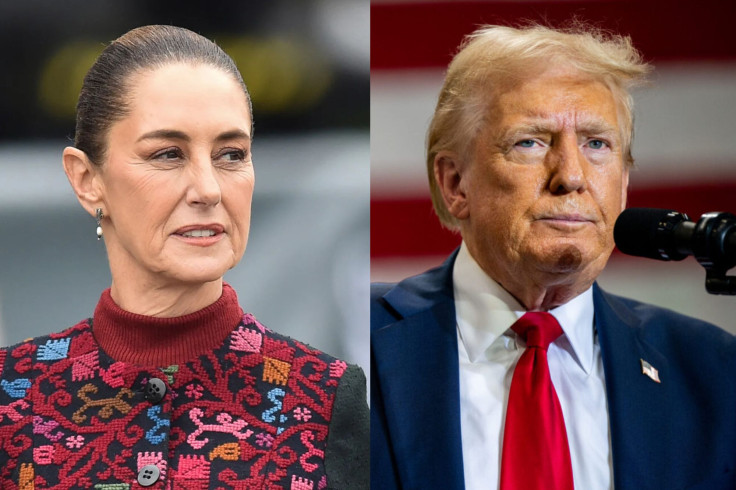
Throughout the campaign trail, President Donald Trump promised to crack down drug trafficking operations in Mexican territory, a plan that caused concern among experts and diplomats who warned would be illegal and dangerous. Now, an organization believes Washington is laying the groundwork for military actions anyway.
Some in the Trump administration are reportedly considering launching drone strikes on drug cartels in Mexico as part of an effort to combat the criminal gangs operating across the southern border.
In those discussions, the White House, Defense Department and intelligence officials were still at the early stages of sketching out potential plans. The administration has not made a final decision or reached a definitive agreement about countering cartels. Nonetheless, a unilateral covert action, without Mexico's consent, had not been ruled out and could be an option of last resort, NBC News reported.
Since Mexican President Claudia Sheinbaum took office, federal forces have adopted a more active law enforcement approach, with the Mexican government having destroyed 758 fentanyl and methamphetamine labs. In addition, the current administration has doubled arms seizures to almost 9,000 in six months. Operación Frontera, Sheinbaum's 10,000-troop response to Trump's pressure to strengthen border control on the Mexican side, has posted similar results, with troops seizing 163kg of fentanyl powder and over 1.13 million fentanyl pills in the first two months.
But regardless of those numbers and the cooperation between the governments, the Trump administration is looking for ways to ramp up its operations. The U.S. military and the CIA have dramatically stepped up surveillance flights over Mexico to collect intelligence in advance of what is likely to be a major campaign against the cartels, which the White House has labeled a threat to national security. The flights are being carried out with Mexico's approval, Sheinbaum has said.
Yet this does not rule out the possibility of unilateral action. That is, carrying military operations in Mexican territory without the Mexican government's consent. President Trump's nominee for ambassador to Mexico, Ronald Johnson, refused to rule out unilateral U.S. military action inside Mexico, and Defense Secretary Pete Hegseth warned Mexican officials in April about possible unilateral action. Both have said variations of "all cards are on the table" when it comes to tackling the cartels.
If this decision is ultimately preferred, it would be the first time since 1914 that the U.S. carries out unilateral military action in Mexico. "Some officials in Washington appear to be laying the groundwork for military action against drug trafficking organizations in Mexican territory, with – or without – Mexico's consent," the Crisis Group said in a passage of its analysis.
Launching drone strikes, special operations or any other lethal action against criminal organizations in Mexico without the country's consent could backfire and cause huge damage to the bilateral relationship, the organization added.
"Any move by the U.S. would certainly be condemned by Sheinbaum's political bae and seized on by the opposition as a sign of weakness, requiring a decisive response. She could halt law enforcement cooperation or return to Lopez Obrador's laissez-faire approach to fentanyl trafficking. She might soft-pedal immigration enforcement or kick the DEA, FBI and other U.S. agencies out of the country," Crisis Group recently argued in a report.
"If better cooperation is what Trump wants from Mexico, military action would be the best way to stall it," they continued.
Some former diplomats and law enforcement officials are also skeptical that fentanyl trafficking can be significantly curtailed through military action. They argue that there is no silver bullet and that the solution has to include close collaboration with Mexican authorities, scanning equipment at border crossings, cracking down on money laundering and enlisting the help of private companies that produce chemicals used to make the drug, NBC News reports.
"It's not a military problem. It's more of a law enforcement problem," Mike Vigil, former chief of international operations for the DEA said.
© 2025 Latin Times. All rights reserved. Do not reproduce without permission.




